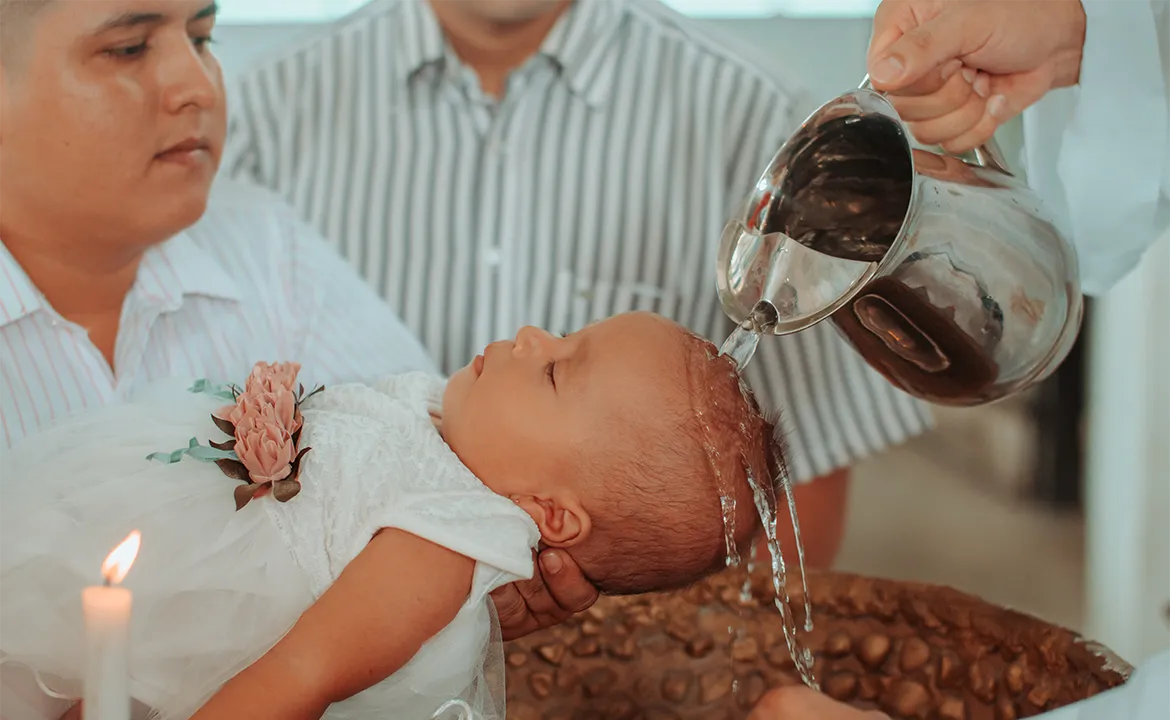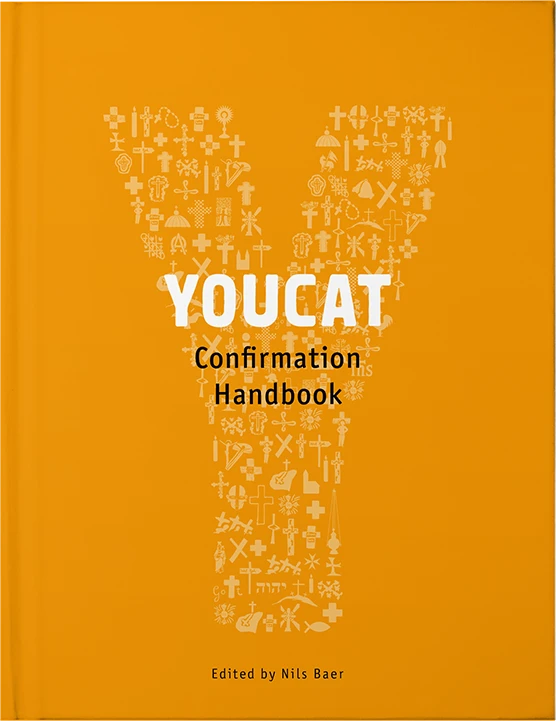

Credopedia
The sacrament of baptism
Baptism is the first and fundamental sacrament of the Catholic Church, in which a person is reborn out of water and the Holy Spirit. It is also called the first sacrament because we cannot legitimately receive any other sacraments before baptism. Baptism is the gateway to the Church, and the beginning of a lasting communion with God (cf. Youcat 194).
- What is original sin?
- Baptism - a new life in Christ
- Who can administer baptism?
- Who can be baptized?
- Baptism of children – yes or no?
What is original sin?
Does this sound familiar? You intend to do as much good as possible today. But no sooner has the day begun than there has been another “row”. Nobody wanted it and yet it happened anyway. It’s pretty hard to be good. And that’s kind of strange, because God created us in such a way that we are happy when we do good. Why do we find it so difficult to do what makes us happy? Did God make a mistake when he created us? No, that’s not it. But what is the problem then? The apostle Paul described this paradoxical situation of human beings in a very apt way: “the good thing I want to do, I never do; the evil thing which I do not want — that is what I do.“ (Romans 7:19)
In fact, human beings are no longer as God intended them to be. Since the fall of man, we no longer possess the fullness of God’s grace. We are afflicted. There is a lack of goodness in us, so to speak. The Catholic Church also refers to this human condition as original sin.
Baptism - a new life in Christ
So, it’s pretty hard to be good. We need God’s active assistance – His divine intervention. This happens in a very substantive way in baptism. Baptism is the fundamental sacrament and the prerequisite for all other sacraments. It frees us from original sin. Baptism restores our relationship with God. “Baptism” comes from the Greek word for “immerse”. This image has a deep meaning: in baptism, the dirt of sin is “washed off”, so to speak. Baptism is new life in Christ. This is also symbolised by the anointing, the white baptismal garment, and the baptismal candle.
Who can administer baptism?
Normally a bishop, a priest, or a deacon administers the Sacrament of Baptism. In an emergency, any Christian, indeed anyone, can baptize by pouring water over the head of the recipient and pronouncing the baptismal formula: “(Name of the recipient), I baptize you in the name of the Father and of the Son and of the Holy Spirit.” (cf. Youcat 198) In baptism, the person is confirmed in his or her individuality. To be baptized in a name means: God knows me. He says YES to me and accepts me forever in my unmistakable uniqueness. Baptism is so important that even a non-Christian can do it. He only has to have the intention to do what the church does when it baptizes. Apart from the intention of the baptiser, the legitimacy of the sacraments is also bound to the matter (real, pure water) and the form (name + I baptize you in the name of the Father…).
Who can be baptized?
Any person who is not yet baptized can be baptized. The only prerequisite for baptism is faith. At the baptism of infants, the parents and godparents make the profession of faith on behalf of the child.
Baptism of children – yes or no?
From antiquity the Catholic Church has practiced infant baptism. There is one reason for this: before we decide on God, God has decided on us. Infant baptism shows in a special way that God turns to people without preconditions and gives them his love even before they can earn it through their own actions. Baptism is therefore a grace, an undeserved gift of God. (cf. Youcat 197) Children also belong to the people of God, just as they are granted citizenship from the moment of birth. Through baptism they are freed from original sin at the very beginning of their lives and are endowed with the grace of God. Just as parents make other important decisions for their children, with baptism they decide that their child should enter life with God. Later, in the sacrament of confirmation, young people themselves affirm their YES to faith in Jesus Christ.

YOUCAT Digital
Discover our digital products, which will help you to grow in faith and become missionaries yourself.







